Latest News
22 May 2018
Most wanted: wastewater
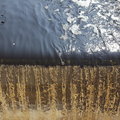
Technology such as MRI helps us to understand the processes that take place in biomass when we purify waste water with micro-organisms. We can use this knowledge to extract more energy and resources (and new pollution) from our own waste water. But we also need new knowledge to tackle problems in the rapidly expanding world cities, where waste water purification is often a relatively new concept. We can and must get much more out of our waste water. This is argued by Professor Merle de Kreuk, who will give her inaugural address at TU Delft on Wednesday, 23 May.
18 May 2018
Delft sensors monitor performance in wheelchair sports
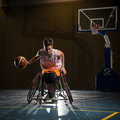
Rienk van der Slikke has developed a technique to monitor individual wheelchair mobility performance using small sensors. On Friday 25 May, he will be awarded his PhD at TU Delft for his work on the subject.
17 May 2018
German President Frank-Walter Steinmeier visits TU Delft
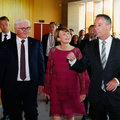
On Tuesday 15 May, German President Frank-Walter Steinmeier and his wife Elke Büdenbender paid a visit to TU Delft and Yes!Delft.
09 May 2018
The TU Delft spin-off NightBalance acquired by Philips

Philips has acquired NightBalance, the Delft University of Technology spin-off company that has developed a ‘Sleep Position Trainer’, to treat positional obstructive sleep apnea and positional snoring. Founder and CEO Eline Vrijland-Van Beest is thrilled that her company will be joining Philips. “Together, we will develop innovative solutions that help people around the world sleep better at night.”
08 May 2018
‘Where there's a will, something goes away’
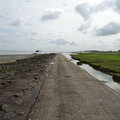
The Netherlands needs to opt for a coastal system that is as adaptive as possible, taking maximum advantage of the coast’s natural resilience and its ability to organise itself. This is according to ecologist, Prof. Peter Herman, who will give his inaugural address at TU Delft on Wednesday, 9 May.
08 May 2018
Test developed which predicts degradation 20th century paintings
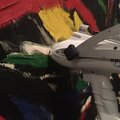
Titanium white is a pigment used in the 20th century by painters like Picasso and Mondriaan. The ‘bad’ version of this pigment can lead to early aging of paintings when expowed to UV light. TU Delft researcher Birgit van Driel has - in close cooperation with AkzoNobel, the Rijksmuseum and the Cultural Heritage Agency of the Netherlands, and within the context of the Netherlands Institute for Conservation+Art+Science+ (NICAS) - developed a straightforward method to estimate the potential risk to painting. This will enable museums to take timely action to prevent damage to paintings. On Wednesday 9 May, Birgit will be defending her PhD at TU Delft.
04 May 2018
Plantenna towards an Internet Of Plants
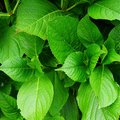
The 4TU.Federation has awarded a total of 22 million euros to five proposals within the framework of the call ‘High Tech for a Sustainable Future’, thus giving a strong impetus to research into sustainable technology.
30 April 2018
First papers published in TU Delft’s Open Access Journal Superhero Science and Technology
In the same week as the worldwide release of Avengers: Infinity War, the latest Hollywood superhero film, the first papers and editorial have been published in the new superhero-themed online journal. The papers in Superhero Science and Technology focus on two members of the Avengers - the Winter Soldier (Bucky Barnes) and Iron Man (Tony Stark).
27 April 2018
Publication Nature Scientific Reports: Beaches worldwide are growing
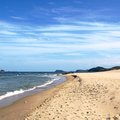
We love holidays on the beach and about a quarter of the world's population live on coasts because of the favourable economic location. But until now we have had only a very vague picture of how coastal areas have evolved worldwide over the years. Scientists in Delft are changing this. Researchers from Deltares, Delft University of Technology and IHE have analysed changes in 50,000 beaches over a 35-year period. They present their findings today in Nature Scientific Reports.
26 April 2018
Cas3: a biological fishing rod and a shredder rolled into one
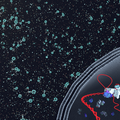
CRISPR-Cas9 has made gene editing a lot easier and will eventually help us erase hereditary diseases from our DNA.
